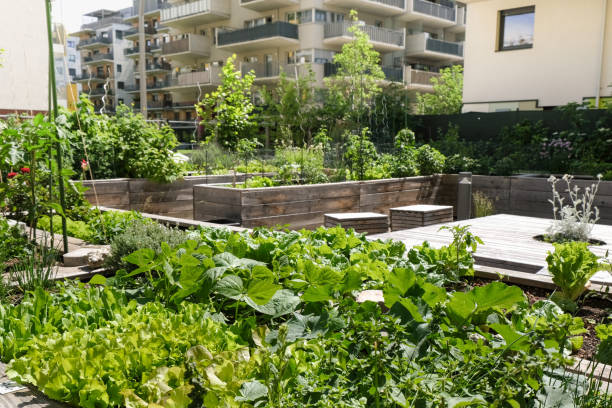Understanding the Social Dynamics of Urban Gardening
Introduction: Urban gardening is more than a hobby—it's a social phenomenon that is transforming our cities and the way we interact with each other. It is a rich and fascinating topic that encompasses aspects of sustainability, community development, and individual wellbeing. Intrigued? Read below to explore more about the social dynamics of urban gardening.

The Roots of Urban Gardening
Urban gardening isn’t a new concept. It has its roots in the ‘Victory Gardens’ of World War II, where citizens were encouraged to grow their own food to support the war effort. However, it has seen a resurgence in recent years, fueled by factors like urbanization, population growth, and concerns over food security. As cities expand and public spaces diminish, citizens are reclaiming these spaces and converting them into productive, green areas. This trend has led to a remarkable shift in the urban landscape and the way we perceive urban living.
Urban Gardening: A Social Catalyst
The modern urban gardening movement is not just about growing food—it’s a tool for social change. As people come together to cultivate gardens, they’re also cultivating community relationships. Gardening encourages people to interact, work together, and share resources—fostering a sense of community and collective responsibility. This sense of connection and shared purpose can be a potent antidote to the isolation and detachment often associated with city living.
The Environmental Impact
Urban gardening also has significant environmental implications. As cities become concrete jungles, urban gardens provide much-needed green spaces that help mitigate the impacts of urbanization. They improve air quality, reduce urban heat island effect, and provide habitat for local wildlife. Moreover, the production of locally sourced food reduces the carbon footprint associated with transporting food from rural farms to urban centers.
The Power of Green Therapy
Another sociological aspect of urban gardening is its impact on mental health. The process of gardening—planting seeds, nurturing them, and watching them grow—has therapeutic effects. It helps reduce stress, improves mood, and even enhances cognitive functioning. This aspect of urban gardening is contributing to an increasing recognition of the importance of green spaces for mental wellbeing in urban planning.
Urban Gardening: The Way Forward
As we look to the future, the role of urban gardening in our society is set to grow. Cities around the world are integrating urban gardens into their planning strategies, recognizing their multifaceted benefits. As we grapple with the challenges of urbanization, food security, and climate change, urban gardening offers a ray of hope—a way to reclaim our cities, foster community spirit, and improve both our environment and our mental health.
The rise of urban gardening is a testament to the power of collective action. It shows how small, local initiatives can have far-reaching social, environmental, and psychological impacts. It’s a movement that’s not just transforming our cities, but also how we relate to each other and the world around us. As urban gardening takes root, it’s reshaping our urban landscapes and our societal norms—one garden at a time.




